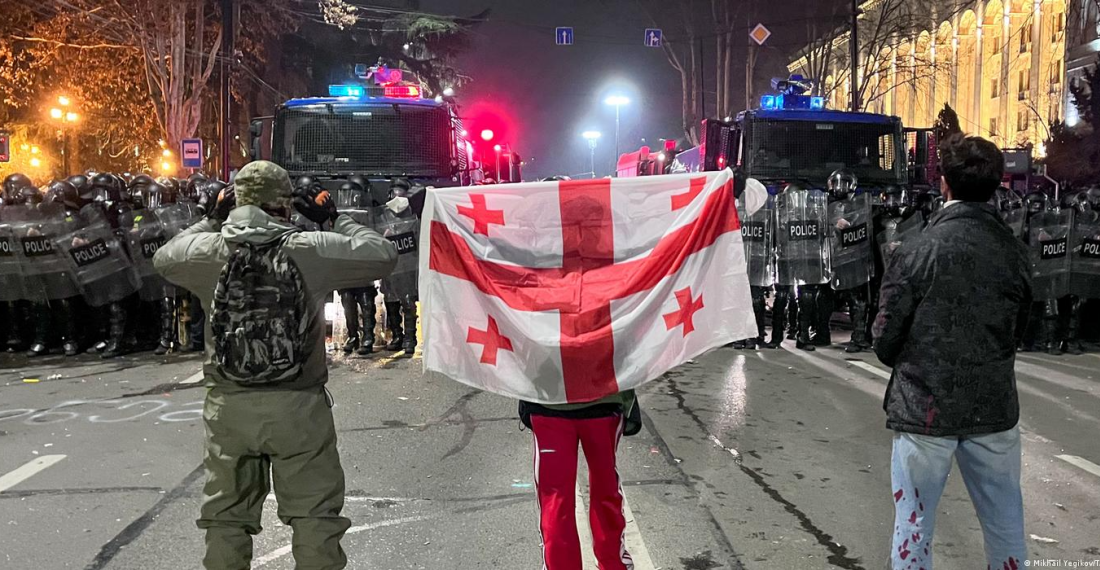The Georgian government has announced that they will "withdraw" the controversial proposed law on "foreign agents" that sparked two nights of violent protests in the capital, Tbilisi.
In an announcement released on Thursday morning (9 March), the ruling Georgian Dream party, the People's Power movement that introduced the law, and the parliamentary majority said: “We, as an authority responsible to every member of society, have decided to unconditionally withdraw the bill we supported without any reservations.”
It is however being reported that the bill cannot be easily withdrawn because it passed its first reading in parliament on Tuesday (7 March). Legally speaking, it would appear that the bill can only be "withdrawn" if parliament were to vote against it in its second reading.
The announcement comes after a second night of violent protests on Tbilisi's central Rustaveli Avenue outside the parliament building, that saw riot police deploy huge quantities of tear gas and water cannon. Protesters also blocked access to parliament, built barricades, smashed windows, and destroyed and burned cars. Dozens of protesters were also arrested.
The proposed law was particularly controversial because of its similarity to a law passed in Russia in 2012 that has been used to clamp down on civil society and stifle opposition, and Tbilisi in particular is known for its vibrant civil society.
Georgian government says "Russian" lable of the law was "false"
The announcement from the Georgian government continued, "The false label of ‘Russian law’ was attached to the draft law, and its adoption in the first reading was presented as a departure from the European course in the eyes of a part of the public. In addition, radical forces were able to involve some of the youth in illegal activities.
"As the emotional background subsides, we will better explain to the public what the bill was for and why it was important to ensure transparency of foreign influence in our country,” the statement added.
EU delegation in Georgia welcomes the bill's withdrawal
As news of the bill's withdrawal broke, the European Union delegation in Georgia tweeted: "We welcome [the] announcement by the ruling party to withdraw draft legislation on “foreign influence”. We encourage all political leaders in Georgia to resume pro-EU reforms, in an inclusive & constructive way and in line with the 12 priorities for Georgia to achieve candidate status."
What was the proposed law on foreign agents?
The draft law, which copied a similar law infamously introduced in Russia in 2012, would brand media, NGOs, and other civil society organisations that receive more than 20% of their funding from foreign sources as "agents of foreign influence".
This would require them to register in a Foreign Influence Agents Registry, and failure to do so would result in fines of up to 25,000 laris (€8,960).
The bill was introduced on 14 February by a group of pro-government MPs who formally left the ruling Georgian Dream party last year, albeit with the party’s support, to "speak openly" about an alleged Western conspiracy to "drag Georgia into war with Russia".
source: commonspace.eu with agencies
photo: Deutsche Welle







